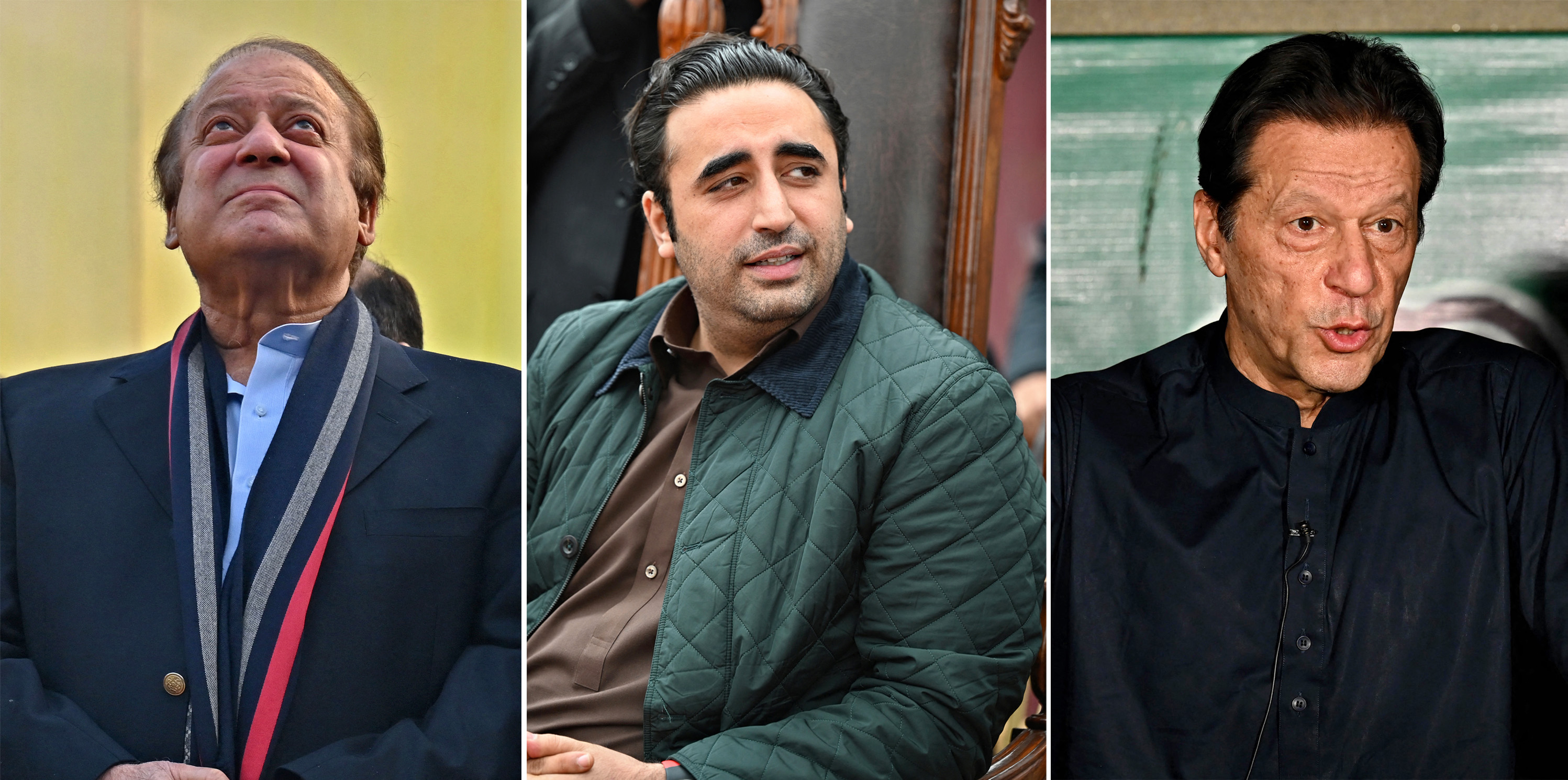
Pakistan's two largest political parties were on Monday (Feb 12) wrangling over who will be prime minister after the elections last week forced them to join forces and try to form a coalition in a parliament dominated by independents, Channel News Asia reported.
Former prime ministers Imran Khan and Nawaz Sharif both declared victory on Friday, with independent candidates backed by the jailed Khan forming the largest group of 93 members of a total of 264 seats for which results were declared.
However, Khan cannot become prime minister from jail and his grouping cannot form a government as they nominally ran as independents as his party was barred from standing.
Sharif's Pakistan Muslim League-Nawaz (PML-N) was the largest recognised party with 75 seats and the Pakistan Peoples Party (PPP) of Bilawal Bhutto Zardari, the son of assassinated former prime minister Benazir Bhutto, was second with 54.
The two parties opened formal talks late on Sunday to form a coalition government, with a statement from PML-N saying the meeting was "constructive" and "both expressed commitment to putting nation's interest and well-being above everything".

According to press reports, there is an intense debate between the parties about who would be the best to lead the next government of the South Asian country.
PML-N source said it was "most likely" that Shehbaz Sharif, 72, who held the post for 16 months until August, will be chosen. He is the younger brother of party founder Nawaz Sharif, 74, who has been prime minister three times.
To become prime minister, a candidate has to show they have a simple majority of 169 seats out of the 336-member National Assembly when it is called into session in the next few weeks. Some 70 seats are reserved for women and minorities, divided between parties on a proportional basis. A party or a coalition will need 134 seats to form the government.
Some independent lawmakers, formerly of Khan's Pakistan Tehreek-e-Insaf (PTI), could join either party, or form a coalition with a smaller party to try to block the two larger parties, analysts say.
The vote was marred by a mobile internet shutdown on election day and unusually delayed results, leading to accusations that it was rigged and drawing concern from rights groups and foreign governments. Caretaker Prime Minister Anwaar-ul-Haq Kakar rejected the accusations and said there was no manipulation of results and no pressure on the election commission to deliver a particular result.